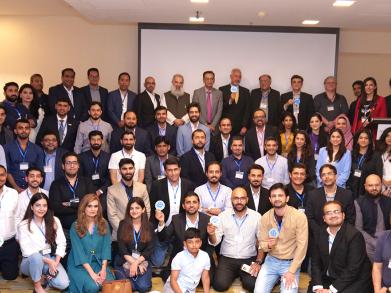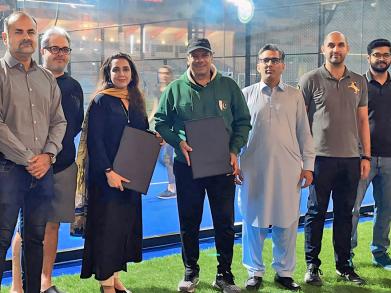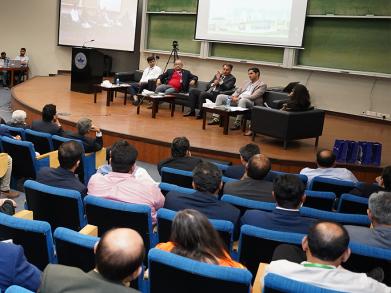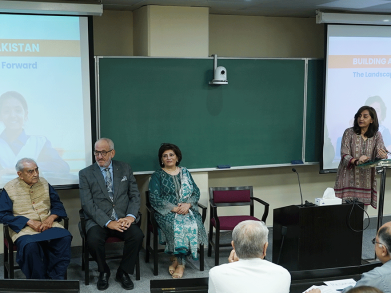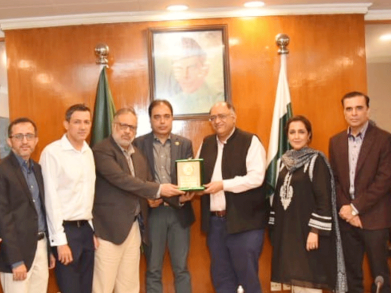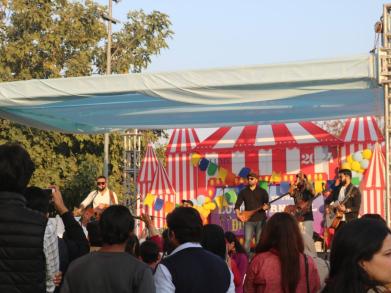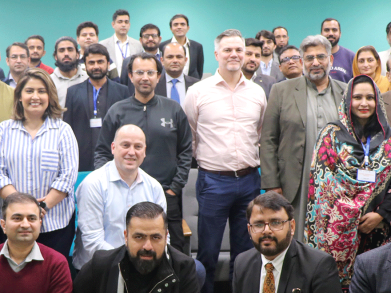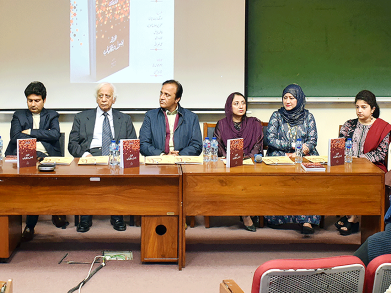Bringing Coursera to LUMS: A Student Council Initiative
The current corona crisis and the subsequent lockdown has halted the productivity and learning of many students around the globe. As an elected member of the LUMS Student Council, Huzaifa Rauf, a PhD Electrical Engineering student at the School of Science and Engineering, and his fellow Council members were continuously looking to devise plans and activities that could help maintain the temperament of students for productive learning and enhancing their skill set. While they were searching for educational activities for students, they came across the ‘Coursera for Campus’ initiative for universities impacted by COVID-19. This motivated them to immediately contact the Coursera administration and get free access for the LUMS community.
“Coursera’s mission is to transform lives through learning. To help minimise the impact of the coronavirus outbreak on students, the Coursera community launched a global effort to assist universities and colleges in delivering courseware online. Their platform provides free access to course catalogues through the Coursera Campus Response Initiative,” shared Rauf.
Stumbling upon this great opportunity, Rauf, on behalf of the LUMS Student Council, submitted a request for 3,500 free student subscriptions for the Coursera platform. “We stated that our university has been impacted by COVID-19 and that we have a large number of students who are keenly interested in continuing their learning using online courses. Fortunately, we got a positive response and were able to get free access for LUMS students, staff and alumni. Students who wish to use the LUMS Coursera platform can sign up and have access to more than 3,800 courses and 400 specialisations from Coursera’s university and industry partners. The disciplines in which courses are available are Data Science, Business, Technology, Healthcare, Arts and Humanities, Professional Development, Physical Sciences and Engineering,” added Rauf.
Rauf and his team reached out to students through the LUMS Discussion Forum, a closed LUMS student community group on Facebook, and through emails to the general LUMS community. The response from the community was overwhelming.
Rauf shared that the LUMS administration and faculty were extremely supportive and appreciated and encouraged the ‘Coursera for LUMS’ initiative. The success of the initiative was also highlighted at a LUMS Live session, where the Vice Chancellor, Provost, and Dean of the School of Science and Engineering, advised students to enhance their desired skills by actively participating in this learning platform.
Rauf is an active member of the LUMS Student Council and works on different committees and initiatives of the Council. He is co-chair for the Food and Pricing Committee, an active member of the LUMS Welfare Committee and a PhD Representative of the LUMS Graduate Committee. As administrator of the platform, Rauf said that he has many responsibilities and there is a lot of workload managing such a large scale online learning initiative. “I have to send manual invitations for every new request and solve the technical issues related to registration, login IDs and access often faced by the students. It is challenging catering to 50 to 60 daily requests, sorting out the issues faced by them and having my inbox full of unread messages all the time.”
Rauf thinks that platforms like ‘Coursera for LUMS’ are the future of education in these times and could profoundly change education for the better. Online learning platforms like Coursera have turned laptop screens into classrooms, where students and teachers can interact with each other in truly collaborative online learning. “Online learning provides an extension to open educational resources for more informal learning opportunities, where learner-learner interaction is the focus as compared to learner-instructor interaction as one goes to scale with hundreds, thousands even tens of thousands of students. The best thing about online learning is that individuals can take a course from the comfort of their office or home. Even with a busy schedule, one can find some spare time to take a course.”
Rauf added that the pandemic is forcing educators, parents, and students to think critically, problem-solve, be creative, communicate, collaborate and be active. It is making students take ownership over their learning, understanding more about how they learn, what they like, and what support they need. Through the online component, they can now personalise their learning and ‘Coursera for LUMS’ provides an excellent platform for this purpose.
For more details, please visit https://www.coursera.org/coronavirus













